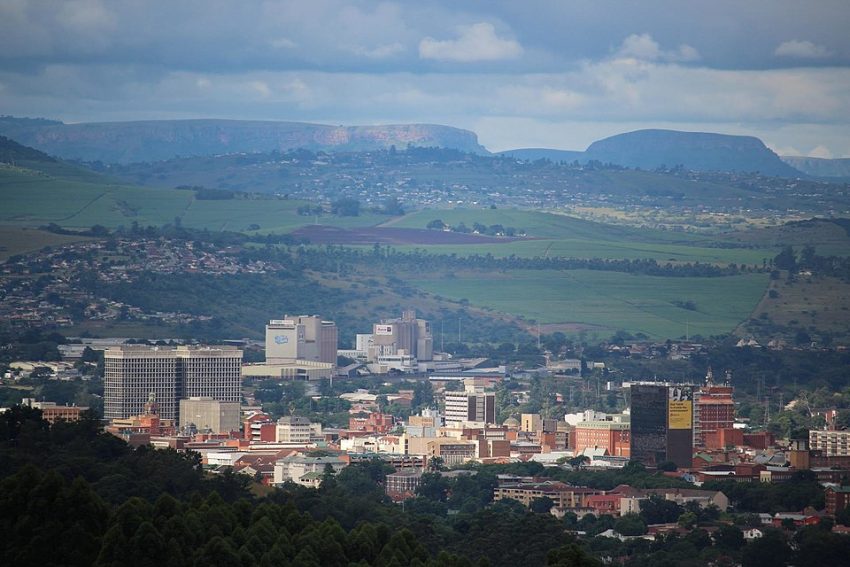By: Juanita Chitepo
Tourism has come to be a word that carries the weight of South Africa’s dreams and desires for economic growth. It is the go-to saviour concept for job creation, community-based development and private market-share expansion. There are so many kinds of travel and tourism from 5 star rated to vagabonding. As the world and its ideologies, cultures, languages and lifestyles continue to evolve, adapt, retreat, shrink and expand in the face of the forward marching Anthropocene, no city reveals the cost of potential starved of vision more acutely than Pietermaritzburg — a case study in how not to do development, where elite alliances are more invested in optics than outcomes or sustainable growth.
The recent annual Africa’s Travel Indaba in Durban was billed, once again, as a celebration of South Africa’s tourism potential. But beneath the branding and media rollouts, it exposed the troubling dynamics of development theatre — the performance of progress without substance. This year SATSA (Southern Africa Tourism Services Association), in collaboration with Sigma International, through the “Doing It For Tourism” campaign hosted a beach braai, invitation-only event attended by 35+ tourism SMMEs, industry partners, select media, and humanitarian Dr Imtiaz Sooliman of Gift of the Givers.
The evening’s goal was to inspire a “pay-it-forward” culture in the tourism sector and launch a legacy initiative: the creation of South Africa’s largest beaded flag, to be displayed at the Jozi My Jozi precinct at Anglo American’s Johannesburg campus. Attendees were encouraged to sponsor beaded swatches, volunteer, or support an SMME in the SATSA Tourism Business Incubator, which has reportedly assisted over 120 businesses since its inception in 2022. According to SATSA, the initiative aims to expand their incubator’s reach, raise funds, and generate enterprise development points for sponsors.
But critical questions remain: Who are these 35 SMMEs? Where is the full list? What do they produce, how were they selected, and what exactly will they earn from this beaded flag initiative? These are not pedantic details — they are essential facts in a space increasingly prone to glossy presentations and vanishing impact. The problem is not ambition or creativity. It is obfuscation, exclusion, and an over-reliance on symbolic gestures that lack measurable follow-through.
Why is a humanitarian leader — known for his frontline work in disaster zones — being used to lend credibility to a tourism-linked event that seems more like a private affair than a state-aligned platform for inclusion? This wasn’t an open community engagement; it was a beachside networking event wrapped in the language of development and unity- oceanic views, fire-side discourse, beaded flags, and hashtags of hope. Sadly form, it seems, continues to triumph over function.
Meanwhile, Pietermaritzburg — Dr Sooliman’s hometown and the headquarters of Gift of the Givers — is disintegrating. The city is visibly overrun by homelessness, social fragmentation, violent crime, and collapsing municipal services. Police shootouts with vagrants in the CBD in the dead of night go unreported. Criminality, including murder, in suburbs is no longer shocking news. Young people, mostly unemployed and unskilled, languish in racially segregated suburbs carved out by the Group Areas Act, with no hope of integration or economic access. Of what use is a beaded flag displayed in Gauteng to a city that is shrouded in neglect?
Events are not interventions. Where are the projects that can turn Pietermaritzburg into a tourism case study that could offer real insight into heritage preservation, arts as a means of building social cohesion, and entrepreneurial sustainability? The stasis of the city’s performative ecosystem -event organisers, media personalities, business elites, and nonprofit leaders who appear at the same events, post the same photos, tag each other on socials, and replicate the same narratives about growth without producing results- is the scourge of development.
It is worth interrogating how tourism continuously borrows from the arts and culture space without investing in the depth and literacy required to engage with it meaningfully. “Authentic” is the buzzword of choice— “authentic Zulu culture,” “authentic township experience,” “authentic cuisine.” But whose authenticity are we consuming? Culture is not a fixed museum relic. It evolves, it contradicts itself, it adapts. Without a serious investment in cultural and historical literacy, the tourism sector risks turning living traditions into palatable props, a re-enactment of Apartheid divides masquerading as community and culture. If arts are to be part of tourism’s engine, then literacy — in language, in history, in lived complexity — must be more meaningfully ignited.
This is the politics of performance. Development is acted out, not enacted. Inclusion is mimicked, not practiced. And the ever-growing circle of gatekeepers — from socialites to media fixers to brand-aligned NGOs — continues to benefit, while ordinary citizens are locked out of opportunity and visibility.
Credibility cannot be constructed out of slogans or hashtags. If SATSA, Sigma International, or Gift of the Givers wish to lead public-facing legacy projects, they must be transparent. Publish names, reveal the accounts. Be specific about who benefits and how. Otherwise, it is not development. It’s theatre — expensive, exclusive, and ultimately ineffective.
Juanita Chitepo is a Theatre Practitioner and writer from KZN. Her interests are in politics, protest, satire and subversion.

